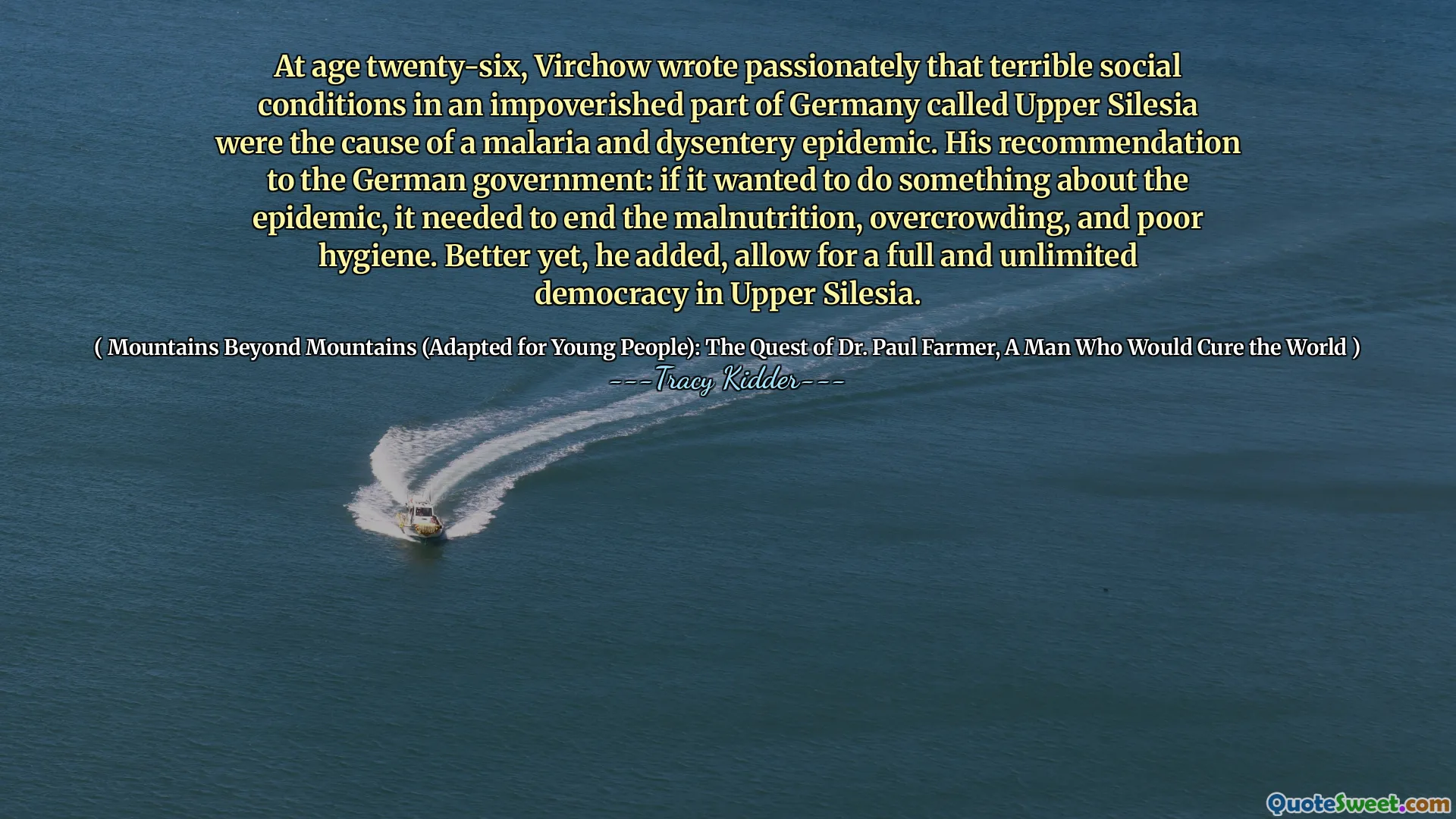
At age twenty-six, Virchow wrote passionately that terrible social conditions in an impoverished part of Germany called Upper Silesia were the cause of a malaria and dysentery epidemic. His recommendation to the German government: if it wanted to do something about the epidemic, it needed to end the malnutrition, overcrowding, and poor hygiene. Better yet, he added, allow for a full and unlimited democracy in Upper Silesia.
At the age of twenty-six, Virchow observed the dire social conditions in Upper Silesia, Germany, which he believed were responsible for outbreaks of malaria and dysentery. He urged the German government to take action by addressing the root causes of these health crises, emphasizing the need to combat malnutrition, overcrowding, and inadequate hygiene practices.
Virchow advocated not only for improved living conditions but also for the establishment of a full and unrestricted democracy in Upper Silesia. He believed that genuine democratic governance could help tackle the underlying social issues contributing to the public health crisis, ultimately leading to better health outcomes for the region's impoverished population.











